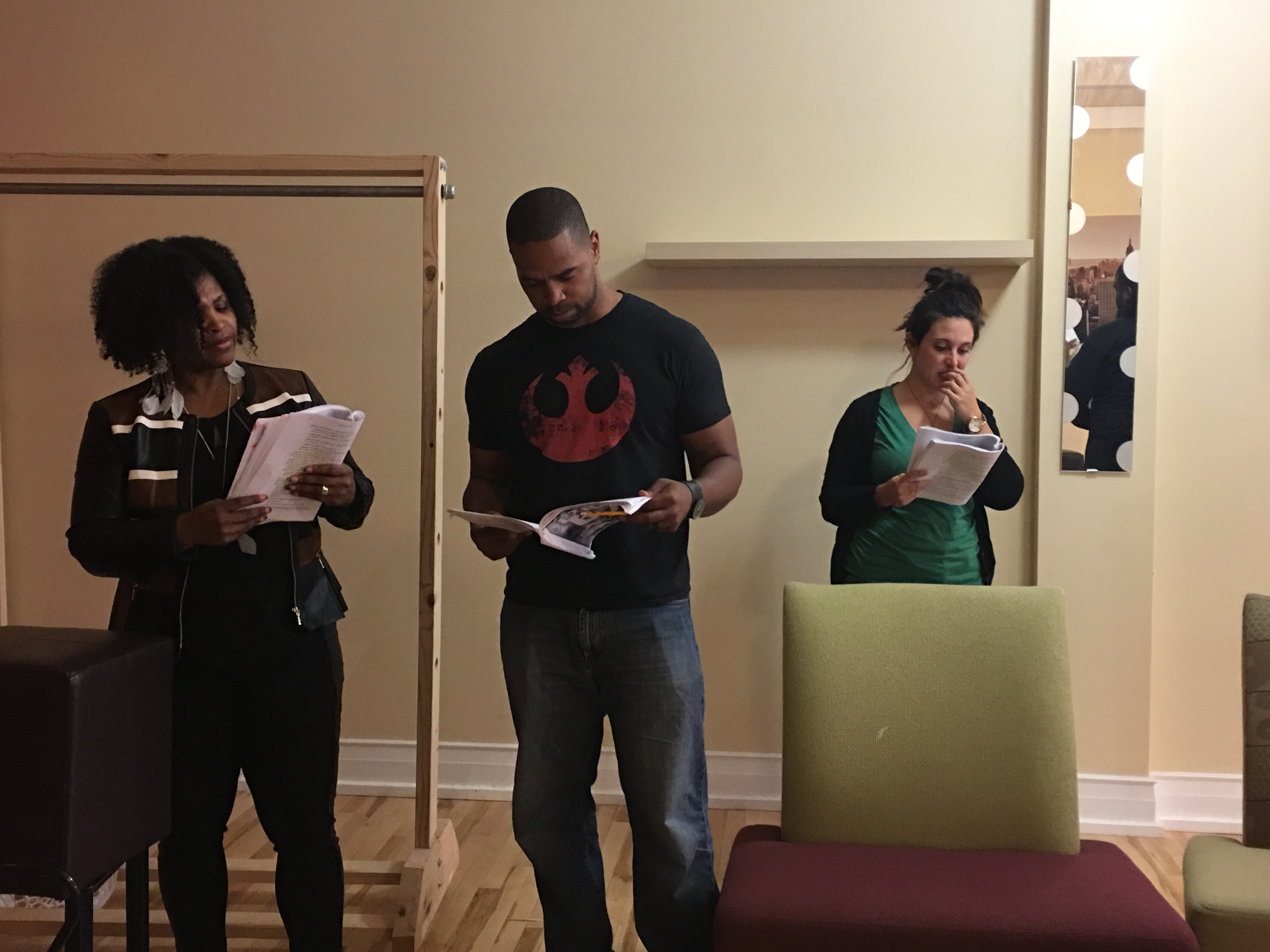Fifty years ago, racial tension was at an all-time high and people were starting to get fed up with the government and police system (sound familiar?). Riots erupted in Detroit and lasted nearly four days, killing 43 people and injuring more than 1,000.
This month Grand Rapid’s Ebony Road Players are remembering these riots through the play “Detroit ‘67” by Dominique Morisseau.
“I want this piece to be recognized as a history piece and understand what the history is, and maybe have a discussion,” said Edye Evans Hyde, executive director of Ebony Road. “I think a lot of people will come for that … because of the political environment that we’re in.”
Though based in reality, the play covers fictional characters. As the riot rages in the background, the drama focuses on siblings Chelle and Lank who make a living turning their basement into an afterhours nightclub. A mysterious stranger enters their lives, emotions erupt and the siblings find themselves in the middle of the riots.
Amisha Groce is making her directing debut with “Detroit ‘67.” Being from Detroit herself, she ties a personal connection into her directing style.
“I probably know every character in this story one way or another,” Groce said. “It brings the residual effects of what happened in 1967 that still face Detroit today. It brings pride that I can do something and be a representative for telling a story that brings light to something that is so not glamorous, but can do justice to the people who had to suffer through it and who continue to suffer through it today.”
In our current political climate in 2017, the cast is thinking about how this show relates and mirrors issues that black people are facing still today.
“If you don’t know your past, then you’re due to repeat it,” said David Nordé, who is playing the role of Lank. “It also highlights a blight, or a situation, that has always been in the black community. Police brutality and always trying to make it in competition with mainstream things have always been things that, us as a people, we’ve always tried to overcome.”
Nordé said with the rise of social media, the conversation is everywhere right now.
“All of this is just very relevant and it’s a message that constantly has to be in the forefront of people’s minds because people tend to forget about these types of things,” Nordé said. “Social justice is still, and will always be, an issue that any community should really consider and know more about, so that they can prevent it in their own communities.”
Even though there still is tension around this subject, cast member Julian Newman said the play shows a connection that stands stronger than the racism.
“What is beautiful is that in the midst of the volume of racism (being) elevated, you see these legitimate and significant connections and relationships,” Newman said. “Really, this play is not about the riot, even though the riot’s kind of the backdrop. This story is really about dreams. It’s about the aspirations of living a more beautiful life.”
Doing such a relevant and heavy drama, the justice of the play falls largely in the hands of the director. The cast said they all feel empowered under Groce’s direction, as she has her own ideas but also allows them to be creative with their own characters.
“She draws things out of us instead of coming down with the hammer,” said cast member Syreeta Drake. “She lets us be more fluid and be more intimate with the set.”
Drake said she also feels safe to make mistakes in rehearsals.
“I think we actually genuinely care about each other,” Drake said. “(The cast has) been really patient with me and my learning process, so it makes it like a safe place to learn and make mistakes.”
Groce said one of the most inspiring things about the show to her is the cast.
“The actors that I’m working with right now are very dedicated to not just being an actor, they’re dedicated to the social issue of it,” she said. “They’re dedicated to bringing to life the personal relationship between the event and the actual people, and that’s inspiring because in the world we live in today of social media … people are so about ego and about themselves.
“To sacrifice what they are sacrificing, timewise — everyone who is here and apart of this project has their professional day job and this is something they’re doing because they’re passionate about it, they believe in it, and they want to be apart of it.”
Detroit ‘67
SiTE:LAB
415 Franklin St. SE, Grand Rapids
Oct. 6-14, $10-$40
ebonyroad.org





